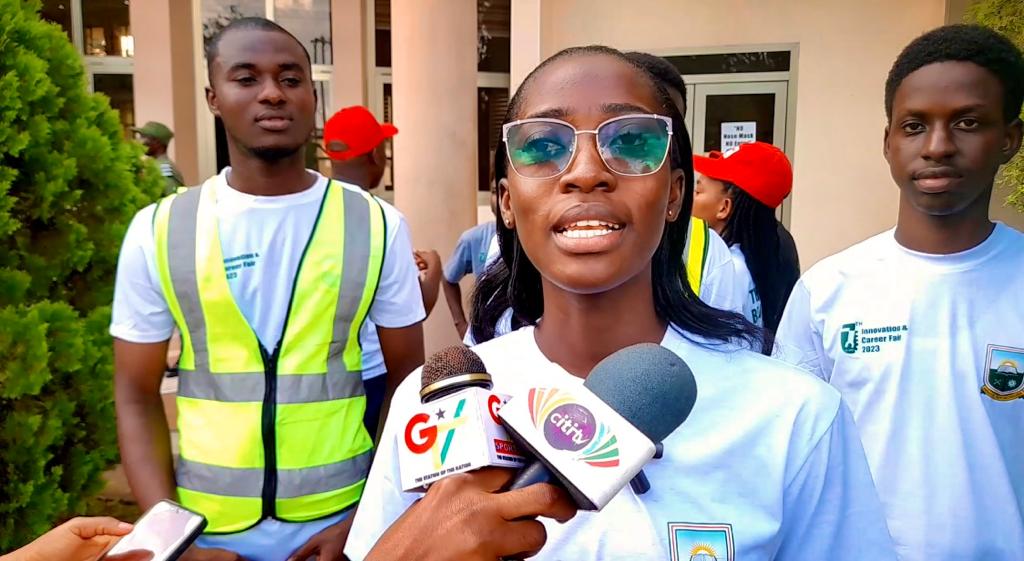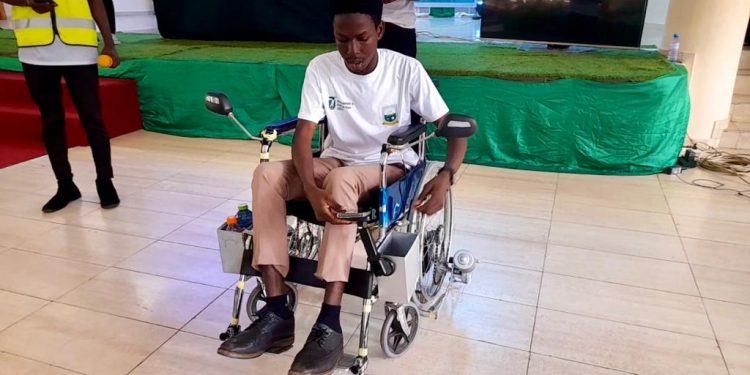Three students of the University of Mines and Technology have developed an Electronic Powered Smart Wheelchair for Disabled, which can be used by healthcare facilities and individuals with mobility disabilities.
The Electronic Powered Smart Wheelchair for Disabled, which has three optional controllers, was unveiled at the 7th UMaT Innovation Competition and Career Fair in Tarkwa.
The innovators of the Electronic Powered Smart Wheelchair were adjudged the overall winners of this year’s competition, which started with 23 entries of innovative projects from both the Essikado and Tarkwa campuses of UMaT.

The team lead of the winning project, Elizabeth Acheampong, told Citi News after the competition that the motivation behind the Electronic Powered Smart Wheelchair was to give some independence to people with mobility disabilities in society.
“The objective of our project was to create a system that will facilitate the conversion of a manually operated wheelchair into an electrically operated one. We did this to help mobility-impaired people to move around freely without the help of anyone, thereby creating independence among mobility-impaired persons in the community. So our wheelchair comes with three-controller options, thus the remote control, the joystick control and the smartphone application. It also comes with two-side mirrors which will help the person in the wheelchair to be able to stretch himself around without having to look back to see what is behind. It also has storage to store few things and a sensor which is still under development“, she said.
Miss Acheampong from the Electrical Engineering Department of UMaT said they are developing means to mount a solar shed on the Electronic Powered Smart Wheelchair to provide shade and an electronic power source on the wheelchair which would still be cheaper than the imported wheelchair sold on the Ghanaian market.

The Pro Vice Chancellor of UMaT, Prof Anthony Simons, said that the most assuring thing about the various innovations exhibited by the UMaT students is their scalable nature into commercial products.
“The main thing I’m taking away from this innovation fair is that our students are thinking by applying the theories they’ve learned to solve problems. This aligns with STEM education, which teaches students to apply science, technology, engineering, and mathematics. Although the products are not yet finished, we need to mentor and encourage the students to develop them into usable products. I also observed that some of the students seem to have merged too many ideas into one project, and we need to help them separate them,” he said.

On his part, the Director of Innovations at the National Entrepreneurship and Innovation Programme, David Ofori, while commending UMaT for the innovations exhibited said the students shouldn’t aim at gaining employment as they have the potential to create their own jobs. He therefore assured that his office has schemes to support such innovations.
“NEIP has a mandate as the foremost agency to instigate, nurture and support entrepreneurship, innovation and startupism across the country. In our world today where we battle issues such as poverty, climate change, unemployment, disruptive technologies, increasing desire from citizens to be in control of their time, etc, it is important to create the enabling environment for entrepreneurship, startups and solving problems through innovation. These can be achieved through collaboration efforts of both government and private sector using the tripod of Ecosystem Support Organisations (ESOs), Academia and Industry,” he emphasized.
The top three winners of the 7th UMaT Innovation Competition will first receive support from the UMaT Incubation Hub among other support.











